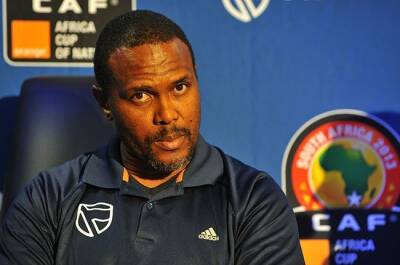‘We play to forget what happened’: football’s refuge for girls who fled atrocities
Lucy is the team’s captain, so she looks after the ball. Her family’s house is about 10 minutes’ walk from the pitch: it is one of the more established dwellings in Minawao, a permanent structure largely screened behind a high mud wall. She greets her mother, who is sitting outside with an aunt, in Hausa before disappearing inside. Once she has retrieved what she came for, the day’s training can begin. “We play football with our friends to ease our minds,” she says. “That’s why they give girls this ball to play with: to forget about what happened to us.”
This could barely seem further from Yaounde, where the Africa Cup of Nations final will take place on Sunday. We are 500 miles away in Cameroon’s extreme north region, tropical greenery having given way to the parched fringes of the Sahel.
For almost a decade it has been one of the most troubled areas on earth, haunted by unspeakable atrocities. Minawao is a refugee camp that opened in 2013 to provide safety for thousands of Nigerians who have fled, and continue to flee, from the Islamist terror group Boko Haram. The border is only 20 miles away but life is relatively calm here. For those who made it this far, the process of rebuilding can begin.
Access to Minawao is heavily restricted but, with assistance from the UN Refugee Agency (UNHCR), the Guardian spent a day in the camp with its girls’ football team. Twenty players, aged between 15 and 19, train five times a week on a dry, flat area of ground in front of the settlement’s youth centre. The team was formed to ensure girls could play despite a male-dominated environment and its sessions are overseen by Modu, a stern but affectionate 35-year-old who coached a school side in his village before the terrorists forced







